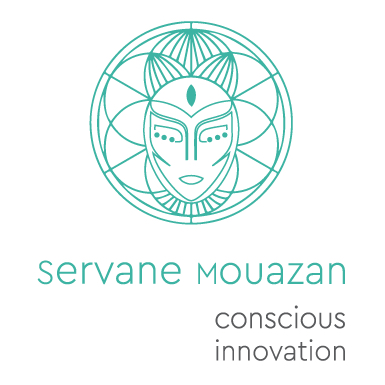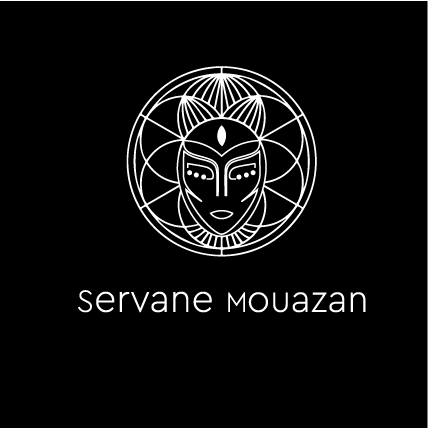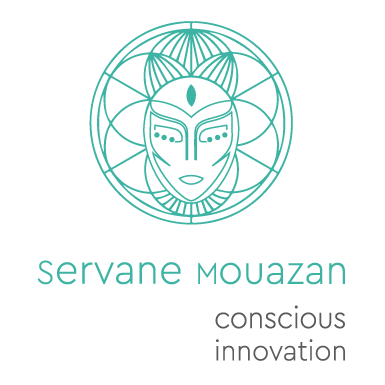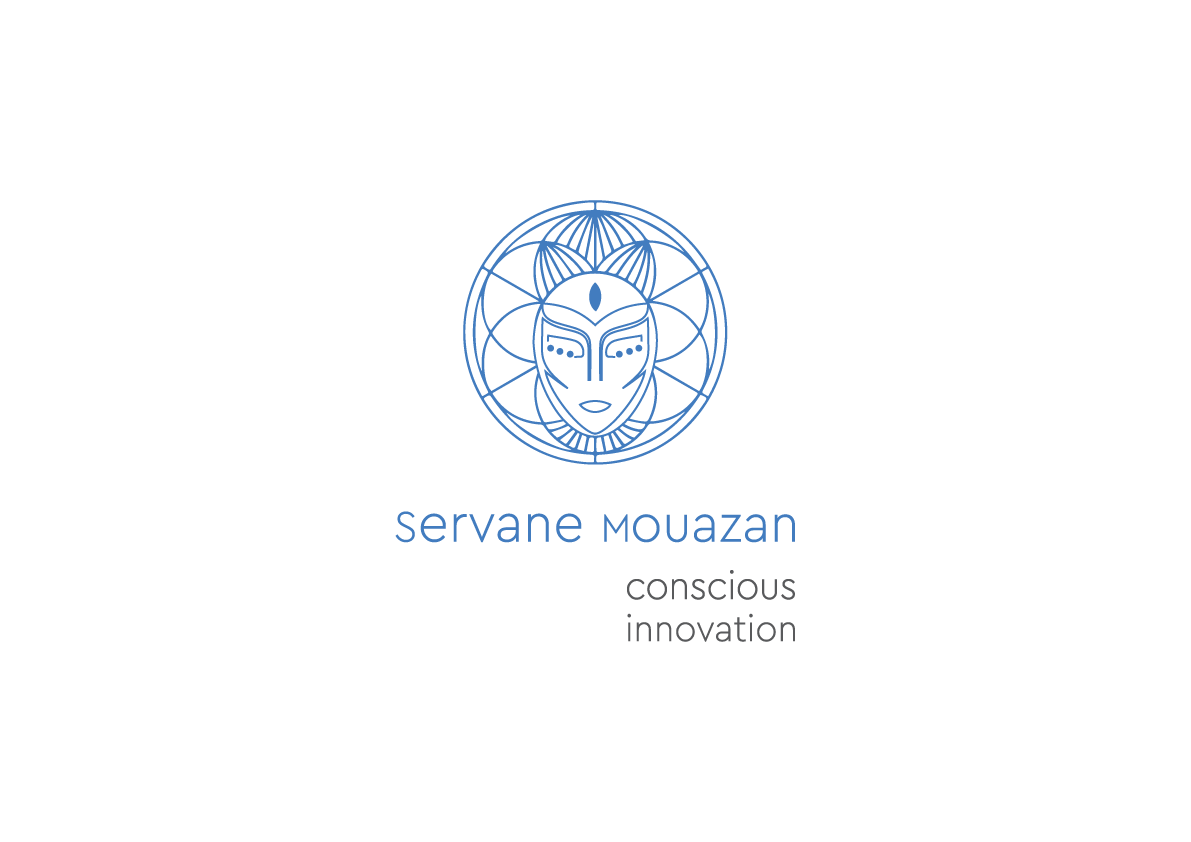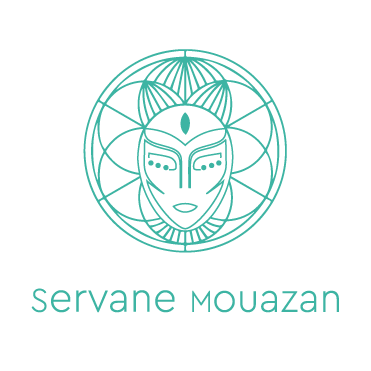Supporting Future Generations through Māori Ethical Indigenous Investing, with Temuera Hall
How do you reframe your worldview, putting the environment before people, people before profit, and the collective before the individual?
In this episode of Be and Think in the House of Trust, I am listening to Temuera Hall, Portfolio Manager at TAHITO, an indigenous ethical investing organisation.
Applying ancestral Māori knowledge, Tahito follows a set of key principles and intrinsic values around connectedness, that guide and drive their investment behaviours and decisions.
This is a tough responsibility because ultimately, “we are but descendants of those who have gone before us, and before that of Ranginui (our Sky Father), and Papatūānuku (our Nurturing Earth), and we’re to honour this wisdom /
Temuera describes how the Māori worldview guides us all through not just a transition but a transformation of the world towards regeneration.
Highlights in the episode
[1:30] My Pepeha [8:20] I question how people actually understand ESG… [11:33] 9 traditional values statements that help you understand your connections to the world. [13.50] Transition is lovely but what we need is transformation [17:00] Towards an Ethic of Care [23:35] Aroha, selflessness and Compassionate Leadership [28:10] We put the collective above the individualUseful links
Tahito website: https://tahito.co.nz/about-us
{{footer}}
Transcript
Servane Mouazan 0:02
Welcome to Be and think in the house of trust. My name is servane Mouazan from conscious innovation and this is a thinking environment with people who ignited social and environmental impact through their investment of funds, resources and commitments for a better world. We look at the conditions that generate more trust and more effective unkind collaborations, how we challenge ourselves into some words that enable us to tell each other "you matter". I'm really pleased to have tinware home with us is a portfolio manager at Tahito. Limited based in Auckland, New Zealand, it will tell us more about where he is in the world. And then that takes me through the belief that by investing in companies that align with the Maori values that can create a world for mokopuna future generations to thrive. And we're going to take a moment to reflect on Temuera's thoughts and inspiration about impact finance and what the world needs to know about indigenous ethical investing. And what he learned by bringing Maori wisdom to the financial markets.
Hi teme.
Temuera Hall 1:20
Kia Ora, Servane .
Servane Mouazan 1:22
So what do you have around you normally when you are at home that represents who you are and what you believe in?
Temuera Hall 1:30
As the indigenous people of New Zealand, we introduce ourselves to what we call our Pepeha. That's what defines us, our tribe and where we're from and it's connected to the environment.
My Pepeha is [maori], so we most tribes have a sacred mountain. Our mountain our sacred mountain is tornado which is in the central North Island, snow capped mountain. And then we have a big freshwater lake. That's like people. Then our tribe is called 92 foot tall. So we're central to the island. So we're not coastal tribes or inland tribe, and our survival. Our sustenance is from forests, mountains, lakes, and rivers. So we capture all that in our introduction, and then you introduce your tribe. Our tribal name, all your tribes named after an ancestor. When you introduce yourself, you introduce your ancestors and because you we only exist because we descend from our ancestors. So for us living today we just a manifestation of all the generations before us, so we're the least important people in the room. What you think of the mighty concept you actually go well, who do you use it to seem from not who are you?
Servane Mouazan 2:48
Okay, I'm noticing that you're not in a usual environment. Today and but I still see that there's a forest and mountain next you can you tell us more about that how you carry your original your origin with you when you travel.
Temuera Hall 3:02
We were fortunate enough to be in Taiwan because my wife's role as the trade commissioner here in Taiwan for New Zealand and where we live is at the base of young men Shan mountain. And it's Taiwan is a beautiful mountainous Island. And we're fortunate to be surrounded by a lot of well cared for parks and then you only have to walk a short distance and we're into the into the forest but it's pretty steep country you got to be fit to be able to walk up and around and these hills.
We actually come from here about five or 6000 years ago. They've traced it through linguistics, DNA and anthropology, their our journey from the indigenous people in Taiwan, down through the Pacific and then all the way to ltr or New Zealand. So we connect with the indigenous people back here and we can trace our genealogical lineage all the way back here and beyond. But that's we'll get into that maybe if we have time.
Servane Mouazan 4:00
Okay, so let's talk about Tahito. Just to set the tone How would you define ethical and sustainable investing from your perspective?
Temuera Hall 4:08
Well, let's let's start like this
[manoho---- tahito]. So that's a little short incantation to invoke our ancestors and give context to our presentation but what that actually says it's talks about Apparently our traditional way of empowering their meaning the knowledge that's contained within and empowering this simplicity, the uniqueness and the clarity. So it's about empowering our traditional knowledge. And of course, our traditional knowledge was developed over 1000s of years, and it's an in-depth knowledge and understanding of nature and astrology. We were massive stargazers back in the day. When we talk about ethical and sustainable investing, we're talking about ourconnection that we have to the environment, and to all aspects of the environment because our Maori worldview follows nature's law effectively, it's relatively simple. We have spirituality is strong and it's a big part of the of our world as it is with most indigenous cultures. But the problem spirituality is a lot of the West with lots of other cultures and rest and world gets caught up in religion. And it's nothing to do with. So we just sort of pack that over there. But if you follow nature's law, and it's pretty simple, really, it's common sense. People can't survive without the environment. So we put the environment before people and then people before profit. And so it's putting finance and economics back in its place. Because at the end of the day, it's a construct made by humans for society to exist. So if you then apply that to investing, we just look at the ethics that have come out of our culture. And combine that with sustainability which is common sense environmental knowledge.
And we use we've just developed a an assessment tool which we call the call fitting topic, which is sounds like a flesh maori weird word. But it's simple translation is careful selection was literally we just follow that pattern we when we analyse companies for our portfolio. So just to give give that some context, our first fund we developed as an Australasian equities fund. So we're looking at all the listed companies on the US, Australia and New Zealand shoe market. So we're now back, you know, and those markets are reasonable size that we can we can manage. And so we look at the environmental metrics and measures first, then the social measures and quality of leadership, which sort of gets into your governance. So, you know, it's we purposely structure it into that ESG so that people can understand it. Because everyone's people will go to what they're familiar with, so they understand ESG we just add the c component on which is their cultural, that cultural element. Yeah. And then once once we've done once we've done that, that's when we start doing our finance, like, you know, we're still learning vestment managers, so we still do our financial analysis, our valuation methodologies and our portfolio construction, but that's the normal stuff everyone does it. Yeah. So what I'm hearing that just recap you've got your ancestors, your ear, their mighty warriors in Stargazers, the great ocean sailors.
Servane Mouazan 7:39
All that lineage for many centuries of in depth observation of nature, astronomy. All of this has helped your ancestors travel around over the seas and you capture their, well you inherit their knowledge and that helps your screening and you start with environment. Then social, cultural and then the governance. What a beautiful way to re explain ESG which creates a lot of waves at the moment. What's your take on all that hoola around ESG
Temuera Hall 8:17
Then
I question, how well people actually understand ESG because at the day, it's a measurement tool. It's a set of measures, which, when applied well, are very useful and developing a good ethical and sustainable and impactful portfolios. I mean we use the MSCI ESG system so I don't have to go and get all the data myself that comes through on my on my laptop.
But you know, it's there's 1000s of data points. So while there is some question mark around the quality of their data, and since we've been involved, which is good seven odd years now with ESG, that data quality is getting better. There's a lot more validation around that. But I don't think many people realise that ESG in itself has no ethics or values or sustainability. That's what the the investment manager, the fund manager or the you know, the analyst has to bring with them.
All of this is just a measurement of stuff. But if you'd now have if you now know how to apply it so what what I see happening is a lot of funds now they will say we had we integrate ESG or we use ESG measures, but all they do is basic exclusions. So they might say, we'll cut out tobacco, we've got no tobacco and we've got no pornography, or alcohol producers to that effect. But just about all of them will have exceptions to the negative screening.
You know, they will say we've got no alcohol but actually if it's under 5%, it's okay. So they don't have they don't have pure exclusions, which are absolute where we do you know, because we're trying to protect the traditional knowledge and the narratives of our ancestors. Well, we don't we're not going to give any exceptions to what we do. We're going to make it 100%. So when we say we've got no fossil fuels, we say we've got no fossil fuels at all across our portfolio as best as we can and measure it. So what you end up with as a lot of fund managers, really they just avoid harm, end of story. It's easy stuff to do. You can take an index fund, cut out a few companies and then you call it a Responsible Investment Fund. And that's the that's the bulk of the market.
They know they're looking for low cost, they just want to they want to have the index, have a low tracking error and still try and have a green label on the portfolio
Servane Mouazan:and make it pretty
Temuera Hall:Yeah. So we're we're firmly of the view that if you want to be have strong, well a high level of ethics and sustainability into any investment product, then it has to be active. You can't be, you can't be a passive in this/
Servane Mouazan:so pure intention reactive intention . And Temuera I have read on you know in your own material that you have derived nine initial value statements that might even be a good school, right you need to get these fund managers started and I will need your help to pronounce that correctly in your language, but the value statements are so relational, interdependent, balanced, consensual , complementary, reciprocal, co-operational, harmony, cyclical, and this talks.. i love ethimology as you might not know, but some people will listen to the podcast will know that the words for me are really important when I see these words that oh, they have some overlap. They're really dancing well together. They help each other they support each other. How do you use these value statements with your you know, with your peers or within your you know, as you start relationship with investees or even when you educate other fund managers?
Yeah, it was interesting when maybe we got given the licence when we set this up, because we partner with a bigger investment shop. And they gave us the licence to build this. So we had two years of r&d effectively, and then in testing their outcome. And so we with that unencumbered ability, we just went deep into our ancestral knowledge with colleagues of mine that they're very knowledgeable and our and our traditional practices and our traditional philosophy and it's about understanding that that same natural log in and being living in harmony with nature, before we were colonised we did we had when there was arguably subs, it was subsistence living, but there was no it wasn't wasteful. We didn't have metal products or anything. So we live pretty close to nature and in harmony with nature. So when we was good, and we looked at and said, oh, actually we're talking about behavioural change, and we thought, are we just gonna get laughed out of the room here people aren't going to understand what that means. leading academics and you know, the leaders and the space when you need transformation, which is what we need transitions lovely, but that's too little too slow. You know, we need transformation if we want to address these issues of climate change and biodiversity loss. And that transformation is still needs to be led by people and the people need to have a behaviour or leadership practices, which are aligned to these sorts of values. So that's our that's our starting point. Now to get from a traditional Maori value, like you've, like you've outlined you know, we call it for knowing that I'm not a while. That's relationship that's know your connection to the world you live in. That's literally what that says, but to get from there into something that we can use and apply and to our analysis of our screening because we use a positive scoring system again, which is another thing that probably sets us apart as opposed to just negative screens. So it's a lot more work. But here we create a abstract statement in English that best captured that understanding. And then we kept them we had to do as a three step process and we wrote a a applied understanding.
Temuera Hall 1 15:02
And from that applied understanding, we could then go and find the measures. We need that best reflect that, when we say we integrate with ESG we say we integrate with ESG on a values basis. In other words, we select ESG measures best aligned to our set of values. And they will be but the bulk of our research is direct research. That's qualitative. It's there's no hard data, it's about looking across a whole lot of things and then making a judgement call. But because we're relatively small across New Zealand, Australia, that way it's easier for us to engage with the companies and with the you know, and and the governance and and ask our questions, which gives us a more informed understanding of whether they are just followers or whether they are leaders, whether they are just doing enough to be compliant or whether they are really driving you know, to bring about change and bring about impact and make a difference and and really is. So yeah, we had one level we say we're measuring behaviour change. I like to throw out that Albert Einstein's quote, he says you cannot solve problems with the same thinking you use to create them. So it's a different way of thinking. That's what an indigenous worldview brings. As I said, we don't put finance and economics in the centre. They're the last step of our process.
Servane Mouazan:They're just peripheral tools that also create some sort of translation for people but the core of it is transformation intention. Behaviour behavioural change, and that's informed by 1000s and 1000s and 1000s of years of practice and results. What more what more should they want?
So, Temuera, can you give us an example of one or two companies in your Tahito investment portfolio? That that were chosen? Because of that, thanks to that approach.
Temuera Hall:Yeah, we lived we probably need to edit. There's another layer. We call it the taco manaakitanga waters which is ethics of care these days the behaviour stuff, which again is very much qualitative in nature to understand that, and it's a you have to take a holistic approach, I suppose. The the the, again, another base understanding of our maori worldview is it's interrelated, everything everything is connected nothing exists of itself. And so again, that's an understanding which I'm hearing more and more. You know, when I go to conferences and seminars and listen to people talk on the space, they're really understanding that to bring about this change, we actually have to change ourselves. You know, it's almost a spiritual shift that we need in, in humans to to break this exploitative you know, insatiable drive for sort of material wealth and, and power and self self gratification, sort of an end to move to, you know, these values of humility and selflessness effectively. And that's what these are the values that sort of underpin our culture, but the ethics of care. They're talking about now caring for your staff and your fan out, caring for your communities. caring for the environment, you know, if the diversity inclusion is gender diversity, it's caring for the environment and clearing for the universe. We get into the space that which we reserve for ourselves to a large extent, but people are starting to understand it. So I'll try and put this in a bit into best English Okay, and we got this. We got this one Manaaki o Ranginui is sky Father, for ease of understanding. I mean, it almost belittles our culture, the talking and the concept of sky father and earth mother because it's too basic.
We connect ourselves our existence, traces itself back to earth and sky. And then we have a whole lot of knowledge that goes beyond that, which is effectively our version of the of the creation on how earth and sky come about. Now, this is this was reserved knowledge for our sort of what would be considered someone as a as a professor or a doctor, doctorate a PhD nowadays, you know, the we had, we had our traditional universities, but then this this knowledge was preserved. So let's just try and keep this easy topaiorani thats the sky, so anything that pokes a hole in the sky or as bright in the sky, we're not going to be happy with so we have an aspirational target of zero carbon zero contaminated emissions. And so we measure against that. Then the other one is what we call the Papatūānuku is Earth Mother, to porro was her chest or her breast and we want to protect them that you know, that leads to leans towards measurements like zero waste to landfills, zero pollution, zero fossil fuels, biodiversity, regeneration, those sorts of measures. So you can see we get from there into some measures and those measures exist, and they're getting better. Then we have what we call Manatorite which is a race and gender equality.
Servane Mouazan:Absolutely.
Temuera Hall:We measured the wage ratio between the highest and lowest and we give it a score. It's a positive score system.
There's not many listed companies that will meet that target of course, but there are private entities out there that are really on board with these sorts of sort of thinking sets. Then then these have put it finally which is about looking after the communities that you impact upon. Right. And most companies are very good now at their community giving but we look for the ones that are actually doing doing it doing that the best. I mean, it's it's part of our problem with the capitalist system is this. It's the fault haves and have nots. So while there might be questions around the quality and the integrity of of charities and philanthropy and all that goes on at the end of the day, a lot of our sports clubs sell you know, just community groups and community efforts can't survive without corporate giving. We just accept that. As a part of it. Our measure then is 10% of net profit after tax. Now, when we put that measure up with a we're not going to find any companies that do that they give that much of the net profit and then we sort of got floored when we come across a was at another ethical fund out of Australia that has their baked into the constitution of 10% net profit to their foundation so you know that there's really some really good stuff that exists. But what was sort of long way of deep into these two key ones which link more back to our cultural worldview and our cultural thinking, and the ones called kinako Aroha, which is about selflessness and Compassionate Leadership . That's looking for leaders that now that they want to bring it into wealth concentration, they've got a better view of what you know how they want the world to be, and they're into transforming their businesses. And they, you know, they said they prioritise their environment. They prioritise their communities and community wellbeing. They have this high level of selflessness and compassion.
Unknown Speaker:Then we got this one that's probably the hardest it's called Maori ohohoro and this is your life life force. This is well being I suppose the biggest best English word is measured as well-being, now there isn't many measures that exists around these last two. So it's quite subjective. You know, you almost got to look for just little little things that are going on and it's for the collection of a whole lot of little things that all add up and go actually there's a lot more good than bad here and what they do, and then we just what's its subjective measure?
Temuera Hall:But that'll what we're finding is as we progress down this pathway, that the before you know it, people are talking and thinking like this a lot more and then becomes then there then you do but develop measures. So I'm involved in another group where we are developing wellbeing measures based off of our cultural values alongside our New Zealand Treasury. So we you know, the New Zealand's got our we've got the living standard measures and we've got this other model that sits alongside it called kioraouaore, which is a Maori wellbeing measurement system, which is not too dissimilar from how we approach it. So when you look at all that and you go, and then come back to your question, so what's a couple of companies that look good in the space?
In Australia, there's a company called Brambles now, there'd be a logistics company in their simplicity, so they have a lot of pellets like wooden pallets, that literally people stack stuff on and then they move them from one place to another. Because then then you got to look at well, what are the models out there that now best aligned to this way of thinking and what we're trying to measure what's true cost accounting, it's circular economy. It's companies that are trying to take waste out of the system that are trying to reuse, reduce, regenerate type thinking, and they're building that into the, into the thinking into their planning into the systems into the infrastructure. They're trying to take the embedded carbon out of what they're doing and they're and they're really serious about that. Well, brambles is one of those sort of companies. That it's a huge multinational company, but based out of Australia, that probably leading and then they're recognised for their leadership in bringing Circular Economy principles, and transforming and this is the difference between people transforming a business as opposed to just transitioning to a low carbon.
Servane Mouazan:Transformation is the key word. Now, Tem, to close our thinking moment here, I wonder? Is there something that really surfaced for you, a learning or take away or something that's really high in your mind right now? That you carry with you from all these experience?
Temuera Hall:Oooh good question!
For my own sort of personal development, I challenge myself every day to see whether I can be true to these values because it's really hard when you've been raised and educated in a system, which is driven towards, you know, the economic models that we live in and behaviours around expenditure and you know, consumerism to really say just the selflessness in this humility. Is that something I can stand by when you get a bit older, it's a bit easier I think.
So, if there's anything like the one thing that I carry, and it's very much a cultural thing, it's we put the collective over the individual, because that's another form of selflessness. But when we say we're connected to the environment, we actually have a genealogical connection that goes all the way back to earth and sky and as I said, beyond so it goes beyond humans now we'd be one of the only indigenous cultures I think, that still has this and has maintained it and have this knowledge set around that. So when we trace our whole history and in our path through through life, it goes again, beyond humans, back to basic factors that requires for life to exist. And it shows you how it all connects.
Temuera Hall:It might seem strange to a lot of people, but we quite comfortably say I'm related to that tree to that bird to that insect to that water, because we can trace their connection.
Servane Mouazan:And that's the missing link right? That was the missing number you're learning and it's embedded and it's totally ingrained in your in your lineage and your way of being in your community.
Temuera Hall:But then every indigenous culture has that. It's just a lot of it's built with the colonisation and what they've faced. A lot of us has been lost but we're all on need to rebuild this connection. And then when you look at whether this big drive towards harmony is harmony and balance, you know the behaviours to be living back in harmony with nature and well then you got to reconnect with nature. And that's that's ultimately our purpose, reconnecting people with nature and understanding that relationship, you know, we have to have it we can't survive without without nature.
Servane Mouazan:That's a fantastic takeaway call and invitation for people, not just in our community but for everyone else who might have heard this story and this approach and evidence that you have that it does make a difference. It transforms the world when you apply this indigenous thinking.
Temuera Hall
And we might want to add, we actually perform really well we still outperform the benchmark. So you know, we can do all this and still provide a competitive return. to investors. And we're better than most so that's that's the surprising upside of this.
Servane Mouazan
Wonderful What more do you think feel want to say and how we can use indigenous knowledge not use I don't like the word use but how we can be inspired and transform ourselves in our community through the so we'd love to hear your insights. So make sure you subscribe to the show and share this episode. For more insights, events and resources on how to think independently for yourself and as yourself and ignite your social impact, head to my website servanemouazan.co.uk and subscribe to my regular conscious innovation updates, the links are all in the notes. We can also find each other on all the social media platforms and start a conversation. I'd love to hear from you. So goodbye for now. Goodbye Teme
